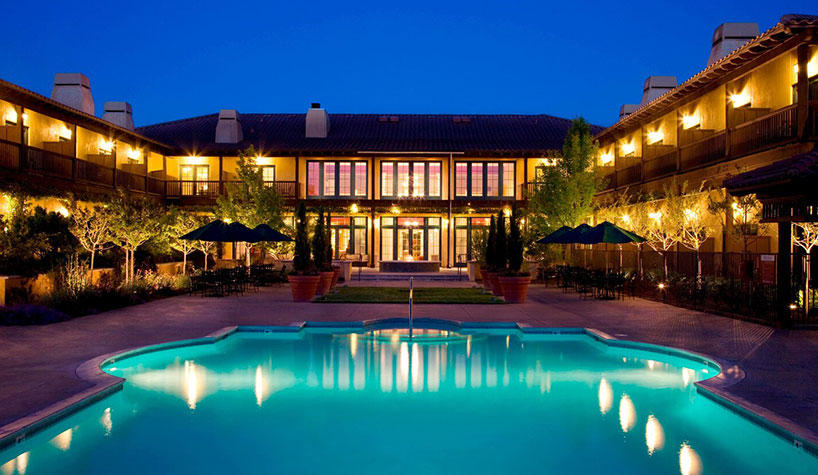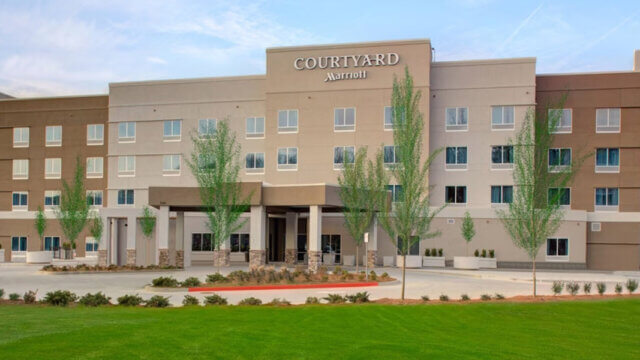BETHESDA, MD—DiamondRock Hospitality Company has released its first quarter results, focusing on ways to mitigate the impact of COVID-19 and set the company up for future success.
“These are the most difficult days for lodging in our lifetime, but through prudent balance sheet management, strong asset management and solid strategic execution, we remain confident in DiamondRock,” said Mark W. Brugger, president/CEO of DiamondRock Hospitality Company, during an earnings call.
In response to the COVID-19 pandemic, the lodging-focused REIT, which has a portfolio of 31 premium hotels in the United States, took several actions at the corporate and property levels. Like many hospitality companies, it implemented plans to reduce operating costs, including suspending operations at 20 hotels throughout March and April; cultivated alternative demand at operating hotels; decreased executive compensation and employee headcount; canceled or deferred more than 70% of its capital expenditures, including pausing the rebuild of Frenchman’s Reef, which the company had planned to open as two hotels later this year; and suspended quarterly dividends.
DiamondRock also fully drew down its $400 million senior unsecured credit facility to enhance its liquidity. As of March 31, 2020, the company had unrestricted cash of approximately $387.8 million.
While it did not apply for any Paycheck Protection Program loans, the company is looking at assistance that would be appropriate. It is also working with its lenders to provide flexibility on certain financial covenants under its senior unsecured credit facility and unsecured term loans. DiamondRock has a term sheet for an amendment to its credit agreements that provides for covenant waivers through March 31, 2021 and certain other modifications thereafter.
First Quarter 2020 Highlights:
- Net loss was $34.7 million and loss per diluted share was $0.17.
- Comparable total revenues decreased 16.0% from the comparable period of 2019.
- RevPAR was $127.98, a 19.2% decrease from the comparable period of 2019.
- Hotel Adjusted EBITDA margin was 10.48%, a 1280 basis point contraction from the comparable period of 2019.
- Adjusted EBITDA was $11.9 million, a decrease of $37.3 million from 2019.
- Adjusted FFO was $8.4 million and Adjusted FFO per diluted share was $0.04.
- As of March 31, 2020, the company had unrestricted cash of $387.8 million.
“We remain confident that travel and travel demand for our kind of hotels will return,” Brugger said. “However, we are realistic that the shape of the recovery will be driven by the virus, identifying a vaccine and the quality of the economy thereafter. The only certainty is that forecasts will be wrong—either too optimistic or too conservative. Accordingly, we are prudently preparing our balance sheet and the hotel operating models for the potential of a protracted and gradual recovery that may take several years to return to 2019 levels of demand.”
During the call, Brugger noted that he expects the second quarter to be the worst period and a recovery will build slowly in the second half of 2020, leading with leisure demand. Following leisure will likely be business transient and small group, with large group returning last.
“We are fortunate that 14 of our 31 hotels are resorts,” he said. “We expect drive-to markets such as Key West, Fort Lauderdale, Vail, Sonoma, Sedona and Lake Tahoe to be among the first to see recovery in demand.”
As for group business, he noted, “It is important to note that full-service portfolios generate about one-third of rooms revenue from group, but all group is not the same. Everything from weddings to large conventions fall into the group categorization. In 2019, our room revenue segmentation for the entire portfolio was 37% business transient, 33% leisure, 27% group and 4% contract or other. Of our 31 hotels, we have just four big-box hotels, and 100% of the group room revenue at these four big-box hotels contributed just 13% of our overall revenue last year. The fact that the majority of our group room revenue is generated by smaller groups, such as board meetings and weddings, is a key point of differentiation for DiamondRock.”
Brugger also sees positives for existing hotels on the supply side. “We expect new construction not already out of the ground will essentially evaporate in the U.S. due to a dearth of financing and uncertain profit outlook,” he said. “Similarly, we expect private accommodation platforms such as Airbnb will see a sharp decline in the number of hosts willing to invite strangers into their homes. Another phenomena worth watching is the potential that hotels that cannot be profitably operated may simply not return. For example, there is discussion that more than 2,000 rooms in Midtown East Manhattan, roughly 10% of the supply, may never reopen and instead convert to alternative uses. This could benefit the remaining hotel owners like DiamondRock. We continue to monitor this situation very closely.”
Last quarter, DiamondRock addressed five areas to drive shareholder value—a resort focus, ROI projects, relaunching Frenchman’s Reef, opportunistic recycling and asset repositionings. “These remain just as true today,” Brugger said.
“While we’ve taken aggressive defensive steps to weather this crisis, we are looking to the future and are focused on taking aggressive advantage of opportunities to add value for shareholders,” he said.




